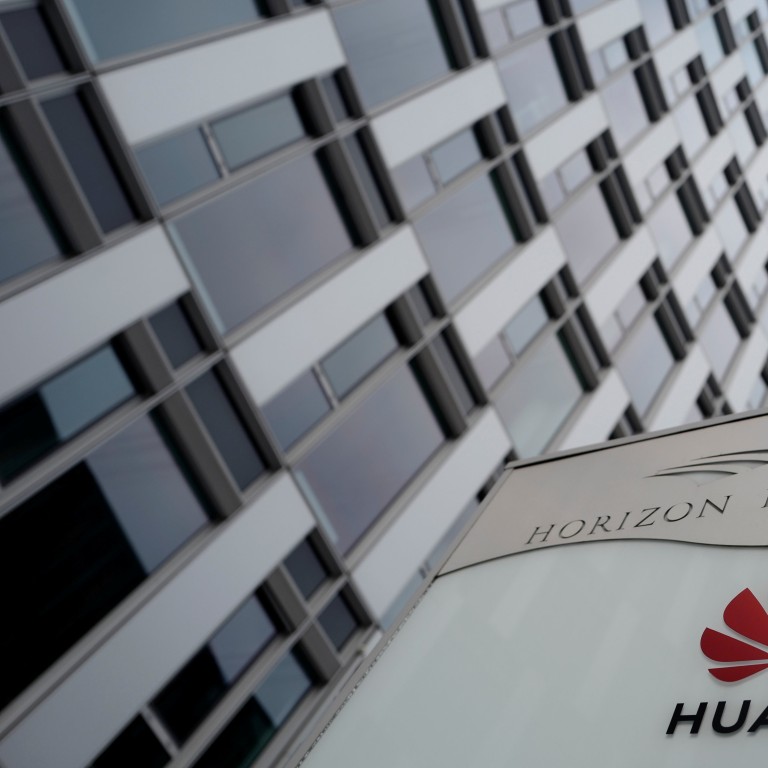
Huawei’s 5G gear seen as a bargain in many European capitals even though Polish arrest lifts security stakes
- Chinese tech giant’s 5G gear seen as cost-effective and reliable in many developing countries who will have to weigh security risks
Huawei Technologies’ competitive 5G advantage in developing markets is likely to remain because of its affordable technology, say analysts, even as suspicion rises following the arrest last week in Poland of a Chinese sales director at the world’s largest telecommunications equipment maker on spying charges.
“Huawei’s prospects in [central and eastern] Europe are still positive following the arrest,” said Kenny Liew, a Singapore-based TMT analyst at Fitch Solutions. “While European governments are becoming increasingly conscious about Huawei’s equipment amid increasing – but as yet unfounded – allegations of espionage, they definitely acknowledge Huawei’s reliability and cost-effectiveness.”
Liew believes that countries closer to China’s orbit in Asia, including central and eastern European nations, and those committed to China’s infrastructure and economic programme the "Belt and Road Initiative", will be reluctant to impose any ban on Chinese equipment as they have to balance relations between the US and China. Huawei’s keenly-priced next generation 5G mobile network equipment will also give it an edge against global competitors in countries with relatively lower levels of GDP.
“Countries will be keen to slash costs [when buying 5G gear] wherever possible, and one way to do so is to opt for cheaper but proven Chinese equipment,” Liew said. “The US may find that they lack the requisite leverage to successfully push for a ban on Chinese equipment in these countries.”
Europe is Huawei’s biggest foreign market. The Shenzhen-based tech giant earned 163.8 billion yuan (US$24.2 billion) from Europe, the Middle East and Africa in 2017, according to its annual report. That accounted for about 27 per cent of its total revenue and more than revenues from the Americas and Asia-Pacific combined.
The arrest of Huawei employee Wang Weijing by Poland last week on spying charges has nevertheless increased the pressure on China’s largest privately-held company, amid broad security concerns raised by the US and other EU countries. Huawei fired Wang on Saturday, saying he had brought it into disrepute and that his arrest was not related to the company.
According to local media reports, Poland’s Internal Security Agency has issued a recommendation for government ministers to use mobile devices of Chinese makers with caution. The source of the information was not cited.
Washington has long seen Huawei as a national security threat and passed a law banning the US government and contractors from using its technology last year. Australia and New Zealand – both members of the so-called Five Eyes intelligence alliance, along with the US, Canada and Britain – have also blocked Huawei from building their next-generation 5G wireless networks on national security grounds.
Huawei has consistently denied any connections with the military, saying that it is a private company that is part-owned by its employees and that governments need to ensure that there is an objective basis for choosing technology vendors.
“The latest development in Poland adds another data point to the increasing evidence of Huawei’s connection with the Chinese military,” said Adam Ni, visiting fellow at the Strategic & Defence Studies Centre at Australian National University. “It’s becoming clearer to Europe that Huawei is not a normal private company in the Western sense,” said Ni, although he acknowledged that the issue might not necessarily sway governments in South Asia, Africa and Latin America.
A number of European governments and telecoms firms have started to reassess their exposure to Huawei. The UK's Defence Secretary, Gavin Williamson, said in December he has 'grave, very deep concerns' about using equipment from Chinese firm Huawei in Britain's 5G infrastructure. Security concerns have also been raised in France, Germany, Belgium, Norway, Sweden, and the Czech Republic.
“By removing Huawei from being able to sell, a risk has been removed, regardless of whether the risk is real or perceived,” said Simon Piff, vice-president of blockchain and security research at IDC Asia-Pacific. “I doubt that they knowingly hired a spy, or endorsed such activities, as they are acutely aware of how they are perceived in many of the EU markets and the US, not to mention Australia and the New Zealand.”

